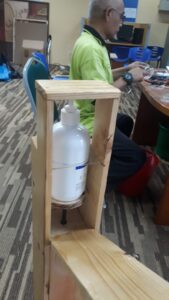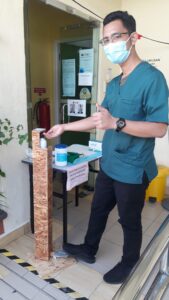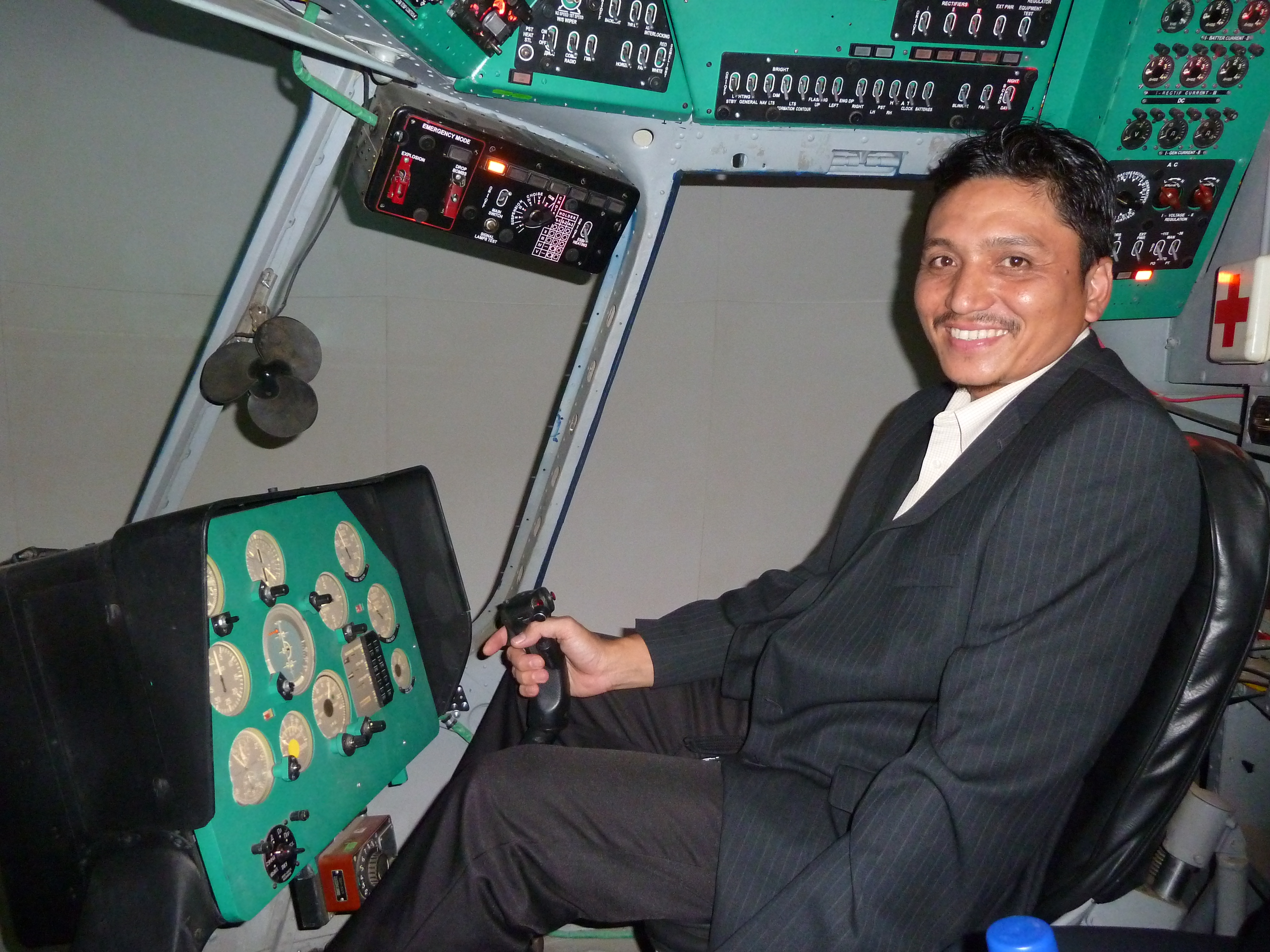Environmental issues are a global issue that needs to be given attention to all communities. If it is observed that this day has become unmanageable and requires an immediate solution to involve the high commitment from all parties. Problems such as river pollution, air pollution, solid waste disposal, used clothing, toxic wastes, electricity/water wastage and non-regulated deforestation is causing an environmental pollution that is increasingly unearthed while combating the outbreak of Coronavirus disease (COVID-19). Environmental issues should be given specific attention and need to focus on the solutions from the authorities especially through university participation. From the realization, Universiti Teknologi Malaysia has organised a series of initiatives focusing on Sustainable Development Goals (SDG) for the formulation of environmental impact since the outbreak of COVID-19 epidemic in the world, to enable environmental issues especially the effects of solid waste disposal.
Sustainable Development Goals (SDG) is a collection of 17 global goals designed as a “blueprint to achieve a better and more sustainable future for all”. SDGs, which was set in 2015 by the United Nations General Assembly and was intended to be achieved in 2030, is part of the UN resolution 70/1, Agenda 2030. The SDG established in 2012 by United Nation Member to plan global action to end poverty, protect the planet and ensure that all people enjoy peace and prosperity by 2030. The 17 SDGs has been integrated – that is, realizing that the actions in one area will affect the outcome of other people, and the development needs to balance the social, economic and environmental sustainability, so its original concept that leads to the slogan no one left behind. Malaysia has also sought to achieve a SDG by completing the current United Nations summit in 2015 in the year 2030. The key intention of this summit is to introduce the new theme ‘Transformation of Our World: Agenda 2030 for sustainable development’. UTM’s Sustainable campus has launched the latest initiative of SDG Localization Plan in 2020 to focus on 17 Sustainable Development Goals that need to be achieved through policy development, management, implementation to enhance the well-being of the campus community with the use of wisdom-based resources and ensuring conservation of the environment is carried out in a large scale to see results and to overcome environmental issues. Through this plan, leaders at the grassroots level are given the role to spearhead integrated efforts with members of the administrators, including students and collaboration with private agencies in conserving the environment.
The world is also affected by the outbreak of the disease including Malaysia. The government of Malaysia decided to implement Movement Control Order (MCO) on 18 March 2020. The requirement to use hand sanitizer dispenser is a must for all users during the MCO and will remain in its use until 2021. Request grew by 100% when the government had continued MCO for the next phase. Expected after MCO the use of hand sanitizer dispenser will increase due to the government has introduced a number of new Standard Operation Procedure (SOP) where each department needs to follow SOP to combat this outbreak, having to prepare the hand dispenser sanitizer before entering the government agencies, hospital, health centre, houses of worship, shopping centre, supermarket, university and schools.
To avoid infectious germs to hand sanitizer dispenser if the carrier COVID-19 positively uses the hand sanitizer dispenser, indirectly dispersed at the suit of the liquid and will be transferred to others. Realising this problem, the need to produce tools to avoid the touch of the seriousness, the innovative idea to cater this issue where hand sanitizer dispenser is pressed using legs. The development of this tool known as the foot operated hand sanitizer dispenser. This kind of technology has spread widely with various designs and sizes. The use of plastic-made material which is not environmentally friendly material, including Chloride Polyvinyl plastic (PVC), stainless steel as well as mild steels are not recommended. The Universiti Teknologi Malaysia has successfully developed a more innovative and creative design to support the elements of sustainable development, namely SDG4 (education for the community), SDG8 (good job and economic growth), SDG9 (Infrastructure, industry and innovation) and SDG12 (responsible use and production) by focusing on environmental issues by producing foot operated hand sanitizers on environmentally friendly dispenser.
The main material to produce this tool is 100% recycled material, consisting of 90% of the compressed recycled timber board and 10% aluminium which can also be recycled. This device was designed by one of the staff from the Faculty of Technology and Informatics Razak, Universiti Teknologi Malaysia Kuala Lumpur, En. Kamal Azam Bani Hashim. He was also assisted by several laboratory staff. He has begun to produce two prototypes after getting a demand for the making of this tool from a Klinik Kesihatan at Taman Medan Petaling Jaya. Since then, the demand for this device has received response when many of the faculty staff managed to raise funds for the development of the tool to be contributed to a number of nearby klinik kesihatan including University Health Clinic. To date, 15 units were produced and in the process of producing more. This tool is a response to an environmentally-friendly factor where the basic building material made from a compressed recycled wood board has an implanted element of decorative furniture. This tool is easily available with cheap prices and is most important for recycling and does not lead to extreme solid waste.
In fact, the awareness of environmental conservation has begun to gain attention to the campus community with the results of several series of survey that has been carried out that the noble efforts in progress have positively impacted when survey results on awareness showed a very sharp improvement especially on the 17 Sustainable Development Goals. The community was practicing daily life on the characteristics of environmentally friendly life, such as recycled wood/paper/fabric/used bottles, tree planting, car pool and the saving of electricity in the campus as well as in their homes.
Pull Quotes.
The latest approaches to ensure a holistic implementation of SDGs at different levels include the “Think Global! Act Locally!” and “Think Long-term! Act Now!”




